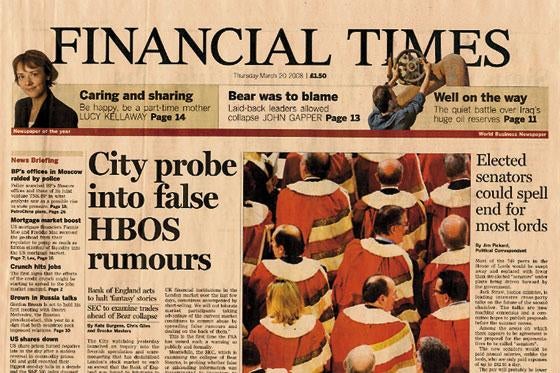
Five UK news organisations today celebrated victory in an eight-year legal fight to stop brewing giant Interbrew from forcing them to hand over details of confidential sources.
The European Court of Human Rights ruled that The Guardian, Financial Times, Independent, Times and Reuters had been right to protect the sources of information about a potential bid for South African Breweries by the company.
Press coverage cause fluctuation in the two companies’ share prices. Interbrew, now part of Anheuser-Busch InBev brewing group, claimed the details had been doctored and leaked maliciously to lower its share price.
The brewer then successfully launched proceedings in the UK to force the news groups to hand over the documents. However, after being ordered to hand over the documents by the High Court in January, 2002, the five news groups decided to appeal.
Despite the High Court ruling and a failed appeals to the Court of Appeal and the House of Lords, the five news groups defied orders to hand over documents, arguing that they had an obligation to protect their sources and that th order violated their right to freedom of expression under article 10 of the European Convention on Human Rights.
Now the ECHR has ruled that Interbrew’s “interests in eliminating … the threat of damage through future dissemination of confidential information and in obtaining damages for past breaches of confidence were, even if considered cumulatively, insufficient to outweigh the public interest in the protection of journalists’ sources”.
The court also ordered the UK government to pay the news organisations’ legal costs of £143,000.
The victory is being heralded as the most important legal precedent upholding a journalist’s right to keep sources secret since Engineer journalist Bill Goodwin won his landmark ECHR ruling in 1996.
The Financial Times said in its leader column today: “The media are not above the law. But speculation about whether the source’s purpose was, as Lord Justice Sedley claimed, ‘on any view a maleficient one, caluculated to do harm whether for profit or for spite’ cannot be grounds for forcing the exposure of media sources.
“Refusing protection to sources that, in view of a court, might have an axe to grind would damage the media’s ability to uncover the truth, since anonymous whistle-blowers might fear exposure. Such a ruling also misunderstands the role of the journalist: good reporters do not pass on tittle-tattle. They are filters, and treat what they are told with scepticism…
“Britain does not give sufficient care to protecting Fleet Street’s ability to hold the powerful to account. This is not the first time that it has taken judges in Strasbourg to protect its media from English notions of justice.”
Michael Smith, the lawyer who acted for the media companies, writes in today’s Independent: “The unanimous judgment by the European Court of Human Rights in Strasbourg that an order to hand over a journalistic document infringed the media’s right to free expression is a reminder that media freedoms are about more than a balanced defamation law.
“Source protection is bred in the journalistic bone, so it was comforting to have the Strasbourg judges confirm the principle’s importance in a democratic society, and the potentially chilling effect that an order for disclosure may have.”
The lengthy sources row turned particular nasty back in 2002 when Interbrew tried and failed in a legal bid to seize The Guardian’s assets in order to force it to hand over details of the source.
At the time, editor Alan Rusbridger said: “We are facing an event unprecedented in British newspaper history. The sequestration of The Guardian’s assets raises fundamental issues about the operation of a free press in this country which will send shockwaves through the world’s press.”
Email pged@pressgazette.co.uk to point out mistakes, provide story tips or send in a letter for publication on our "Letters Page" blog






